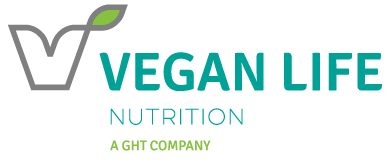What is lanolin made of?
Lanolin is found in a wide variety of products, from skin lotions and hair removers to shaving creams, lip balms, and lipsticks to hoof and paw creams for animals. But, what is lanolin? Also known as “wool wax” or “wool grease”, lanolin is a type of wax that’s secreted by the sebaceous glands of sheep. It protects the animals against climate extremes due to its inherent waterproofing property as well as its ability to nourish and protect the skin.
The benefits of lanolin as an “emollient” which softens and smooth the scales of the skin and provides a layer of protection that helps prevent moisture loss from the skin has made it a widely used ingredient in personal and health care products including:
- Facial cosmetics
- Lip products
- Topical ointments
- Skin creams and lotions
Other common uses of lanolin are in commercial products such as lubricants, rust-preventative coatings, shoe polish, and saddle soap.
Lanolin is also used in the production of Vitamin D3 through “lanolin processing” which involves extracting D3 from the lanolin after which it undergoes a chemical process to produce a substance called “7-dehydrocholesterol”. This substance is then exposed to UV radiation to change it into Vitamin D3 much like the process that takes place in your body when your skin is exposed to sunlight.
Simple answer: wool oil
As far back as the ancient Greeks, people have used sheep wool oil as an emollient to soothe, protect, and heal their skin, but it wasn’t until the late 1800’s that scientists were able to perfect a method to produce a more purified product — lanolin — which was subsequently used to make topical skin products.
Since then, many modern uses have been found for lanolin. In addition to its use as an emollient in many personal care products and in the production of Vitamin D3, it’s also a common ingredient in many dermatological products and even as a food additive in some chewing gums.
The ubiquitous appearance of lanolin in so many of the products that are used on a routine basis makes it difficult for vegans to distinguish products that contain some form of animal wool oil from those that don’t, especially when it comes to Vitamin D3. This can become an issue for vegans because they need to add supplements to their daily routine to ensure that they aren’t deficient in essential vitamins such as D3.
Products without lanolin
Vegan Life Nutrition, a GHT Company, offers a diverse selection of vitamins for vegans, including Vitamin D3 without lanolin. Vegan Life’s Vitamin D3 is sourced from lichen, a plant-like moss that has the unique ability to grow and accumulate Vitamin D3. This is the only D3 which has the seal of approval from the UK Vegan Society.
Once they learn what lanolin is made of, both vegan and many non-vegan consumers agree that they want a plant-sourced alternative to the Vitamin D3 that’s produced through lanolin processing.
To learn more about our plant-based Vitamin D3, check out the VLN website.
